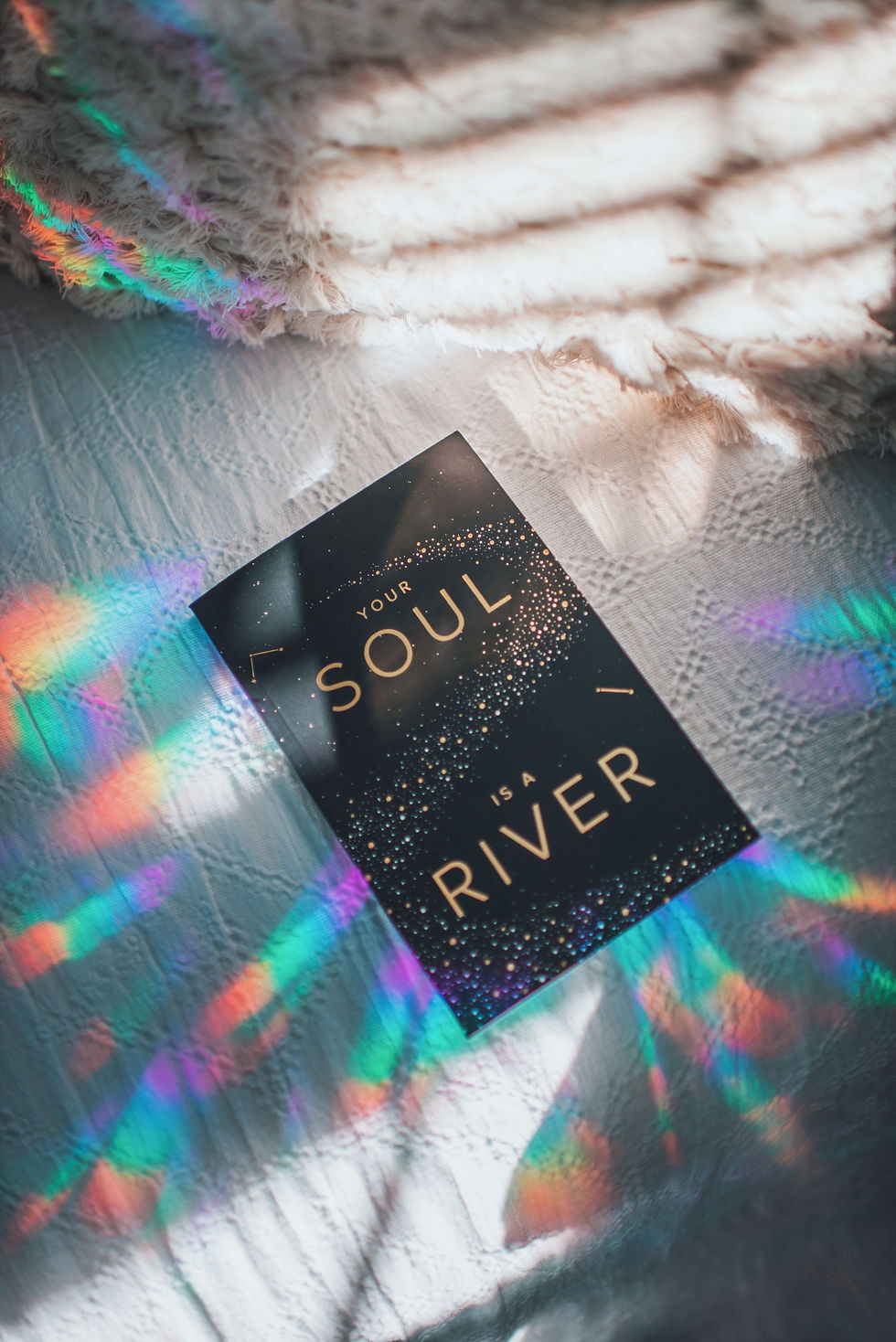BIBLIOTHERAPY: THE HEALING POWER OF BOOKS
- R. B. L. Robinson - Author

- Aug 21, 2020
- 3 min read

Bibliotherapy is the healing art of prescribing just the right literature for someone to read at just the right time. The application of the correct words, like a soothing balm, can help people to feel better, and many studies have shown that bibliotherapy can effectively treat patients living with depression and psychological illness.
TAKING CHARGE OF OUR WELLBEING THROUGH READING
Bibliotherapy sounds new-fangled, but it has been around for centuries. King Ramses II of Egypt kept a royal library with a motto above the door which read "The House of Healing for the Soul".[i] And now, in the 21st century, it is a medically-recognised practice.
The ‘Reading Well’ organisation promotes the benefits of reading for health and wellbeing with two GP endorsed programmes: Books on Prescription and Mood-boosting Books. ‘Books on Prescription’ helps us to understand and manage our health and wellbeing using self-help reading, whereas ‘Mood-boosting Books’ is a nation-wide campaign to get people to take charge of their mood by reading inspirational novels, poetry and non-fiction.
We should all try a bit of bibliotherapy. Curling up with a good book in front of a roaring fire with a mug of tea has long been known to be restorative, relaxing and recuperative. Reading and expressing myself through the written word have been an energising and relaxing boost for me since I was a little girl. I wholeheartedly believe in the power of books to create positive change in us.
READING AS MINDFULNESS
As we read, we focus only on the words on the page in front of us. We shut down our other thoughts and become more focused, mindful and engaged. This period of escape allows us to break the cycle of negative thoughts that may be running through our mind on a loop and serve as a stress-reliever. When we are actively and positively engaged with a task, and are in charge of directing our thoughts, we are living from a place of power. Reading can give us the pause we need from anxiety, and the beneficial effects can be felt long after we put the book down.
WHAT TO READ?
There are many books recommended by the ‘Reading Well’ organisation. They range from Paulo Coelho’s enchanting allegory ‘The Alchemist’ to ‘The House at Pooh Corner’ by A. A. Milne, which is filled with words of good cheer and innocent wit and wisdom. Escaping to the Hundred Acre Wood with Winnie the Pooh and Piglet is a tonic any day of the week, as far as I’m concerned. Another book recommended is ‘Penguin's Poems for Life’, with verses selected by Laura Barber. In ‘As You Like It’, Shakespeare wrote that ‘One man in his time plays many parts, / His acts being seven ages.’ So this anthology is divided into sections that chime with the entire human experience: birth, childhood and growing up, career, love, family and ageing, then death, grief and remembrance. For more suggestions of what to read, see: www.reading-well.org.uk
READING TO CONNECT AND CREATE CHANGE
When we read, we identify with the main characters and the story. The situations or feelings of the protagonist may resonate with us, and we are able to feel our emotions through the safety of the written word. We empathise and feel less alone when we understand that we are not the only person to be going through this situation or feeling this way. The kindling of empathy within us is a powerful thing as it opens up our sense of connection to others, making us more compassionate and understanding.
When we view our own life situation through the lens of someone else, this will cause us to feel our emotions through the safety valve of another person. Even if this character is a fictional one, through the strength of our imagination, they can seem quite real to us. Our imagination is amazing, and we should not underestimate it. Through reading and creativity, we can use it to harness change for ourselves.
Reading can help us to process our thoughts differently, see our circumstances with fresh eyes and even experience our feelings in a new way. This is progressive, positive and can help us to develop and move forward, teaching us to see new perspectives and ways of looking at things. Through reading the right book at the right time, we may find catharsis, solutions and the key that opens the door to our best self.
[i] Lutz, C. (1978). "The oldest Library Motto: ψγxhσ Iatpeion". The Library Quarterly. 48 (1). JSTOR 4306897.




